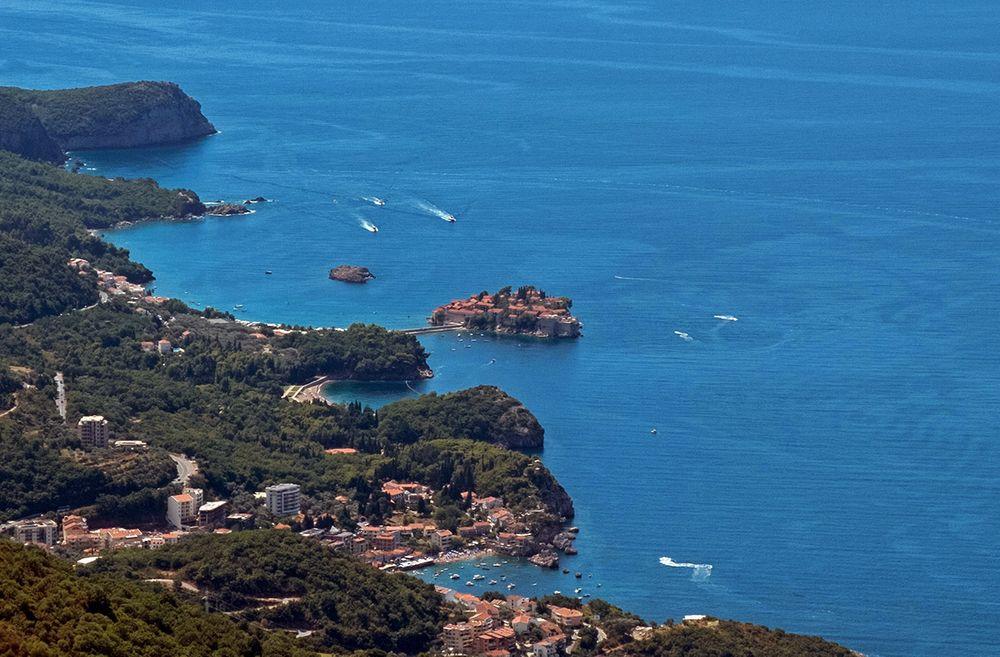World 🢖 Europe 🢖 Montenegro
Cities and towns 🢔 Settlements 🢔 Architectural wonders 🢔 Categories of wonders
Wonder
Sveti Stefan
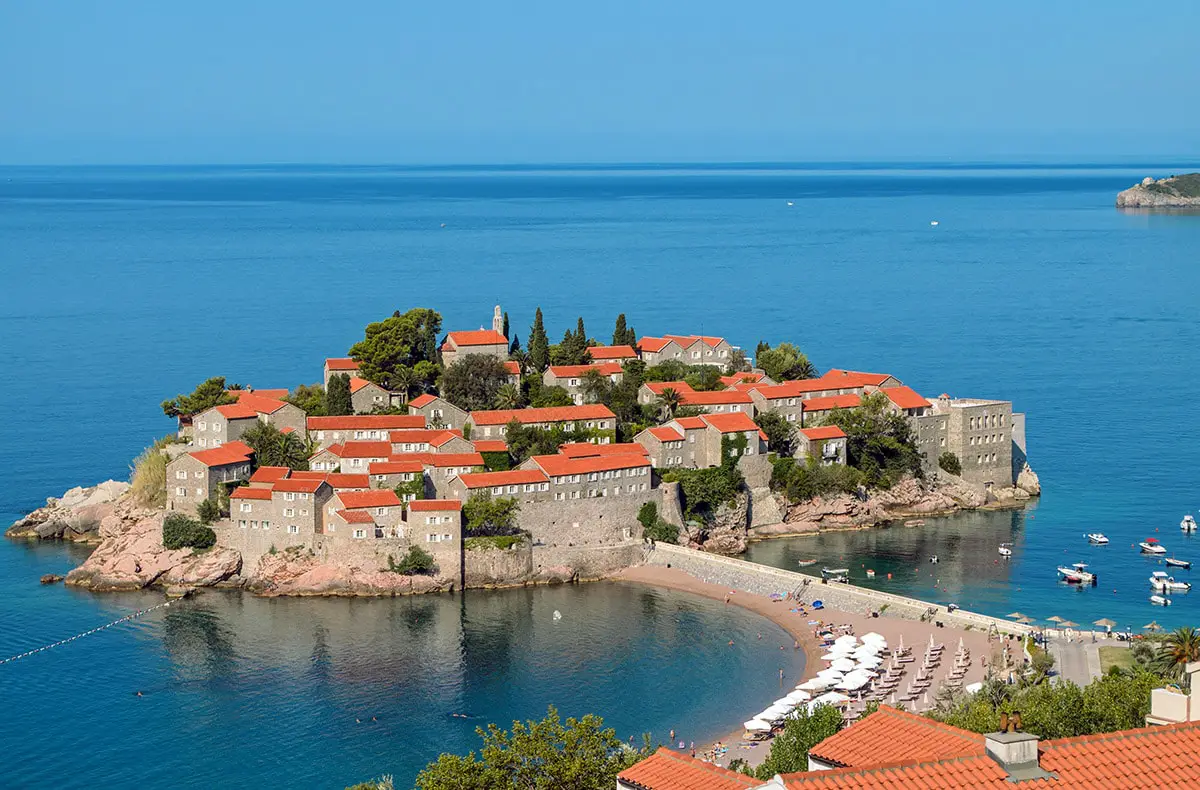
 In short
In short
The mountainous coast of Montenegro is rich with cultural heritage. Especially beautiful are historical towns, such as Sveti Stefan.
 38.2%
38.2%
GPS coordinates
Location, address
Name in Montenegrin language
Founded
Period of flourishing
Area
Map of the site
If you see this after your page is loaded completely, leafletJS files are missing.
 In detail
In detail
History
Initially Sveti Stefan was a small, rocky island close to the shore of the Adriatic Sea. Only in recent times here was formed a short earthen isthmus connecting it to the mainland.
First written accounts of the settlement on the island are from 1442. 12 local families led by the Paštrovič family escaped here from the attack of Turks on nearby Kotor. These people turned the island into a fortress and became allies of the Venetian Republic.
Town was razed down around 1574 and in the 16th century rebuilt again as a fortress of Venetian Republic.
While at the beginning of the 19th century on the island were living some 400 people, by the late 19th century Sveti Stefan declined – people gradually were leaving it. In a way, this helped to preserve the historical buildings which were not maintained and rebuilt any more.
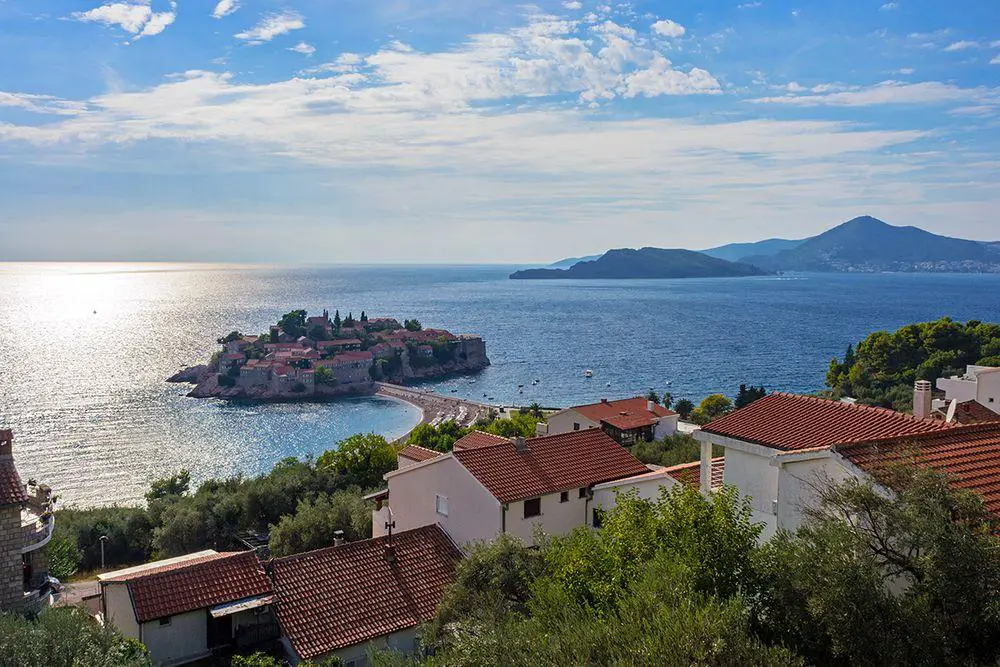
In the 20th century new times started. In 1934 – 1936 on the mainland, near the island was built Villa Miločer – a summer residence of the influential Serbian family of Karađorđević and since then the resort of Sveti Stefan started to develop.
In 1955 the remaining inhabitants of the island were resettled to the mainland and the whole island village was transformed into a luxurious resort. In order to preserve its exquisite charm, the architectural and artistic heritage of the island was meticulously preserved.
The secluded, beautiful resort became very popular among famous and rich people, especially in the 1960ies – 1980ies.
Due to wars in the region the fame of the resort faded in the 1990ies but now, in the 21st century, the former glory is returning step by step.
Description
Although the town of Sveti Stefan now is larger, the historical core of the town is the small peninsula (former island) which is connected with a 100 m long causeway to the mainland.
The rocky island in some places has historical fortification walls which enclose some 50 red-roofed houses hiding in lush gardens.
On the island are located three churches. The main church is Sveti Stefan church on the highest hill of the island. It gave its name to the island and village. Other churches are Alexander Nevsky church and Transfiguration church at the entrance of the island.
Currently resort under the name Aman Sveti Stefan offers 58 guest rooms. Of course, a luxurious resort looks too tidy and perfect in comparison to a real fishermen’s village – but this unique island continues its life in new quality without losing much of its heritage.
 Linked articles
Linked articles
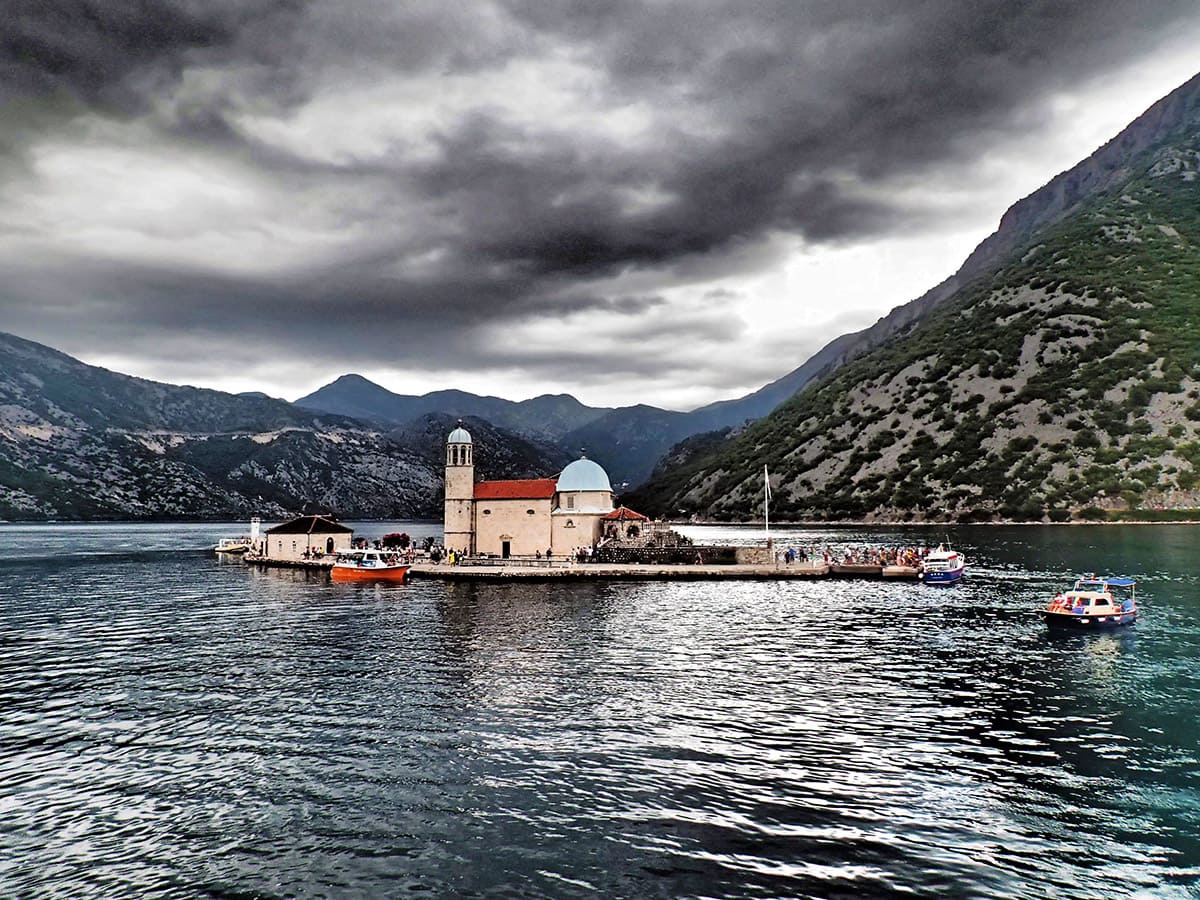
Wonders of Montenegro
This small country has very impressive scenery with tall mountains, very deep gorges and canyons, and the sea with cliffs, small islands, and deep bays.
Most impressive landmarks of Montenegro are its historical seaside towns – for the most part, these were Venetian port cities, often built on small islands or peninsulas – such as Sveti Stefan or Budva.
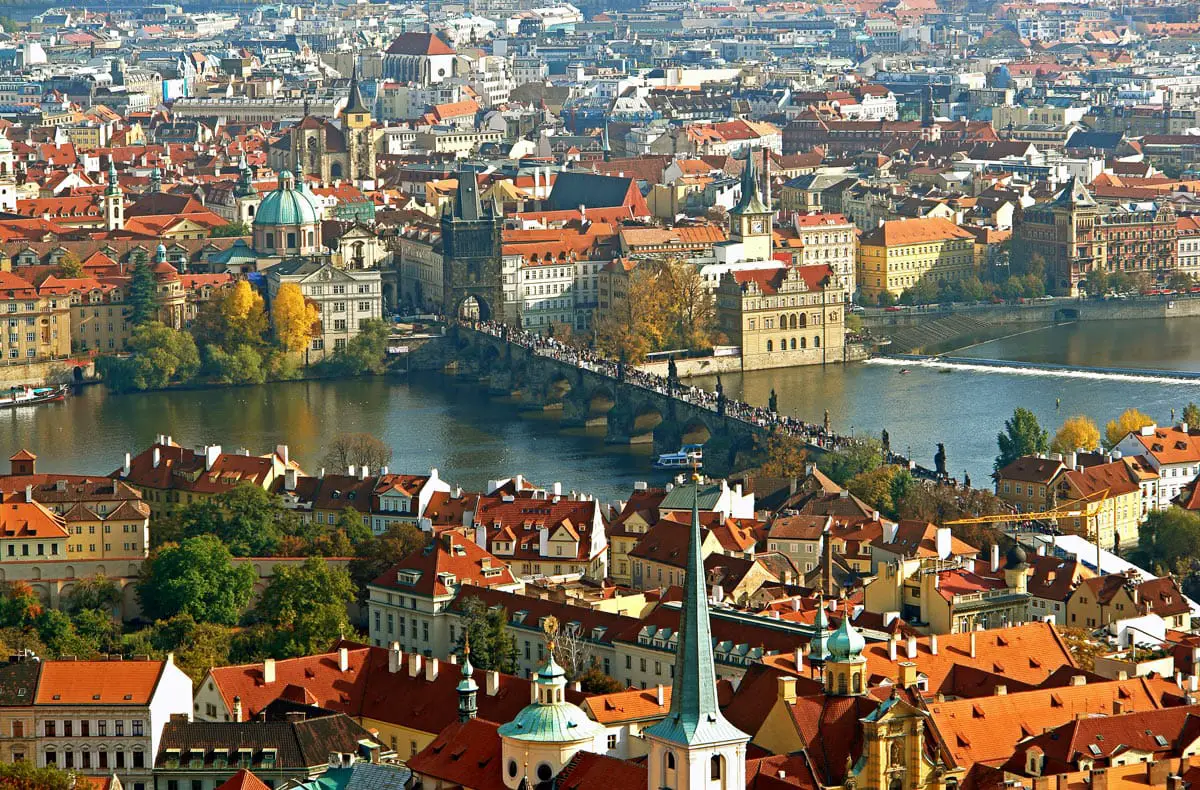
Cities and towns
Many of the most popular and exciting landmarks in the world are cities and towns. Millions of tourists are attracted to such cities as Venice, Florence, Prague, and Jerusalem. They never fail to impress and one will always find something new and unexpected here.
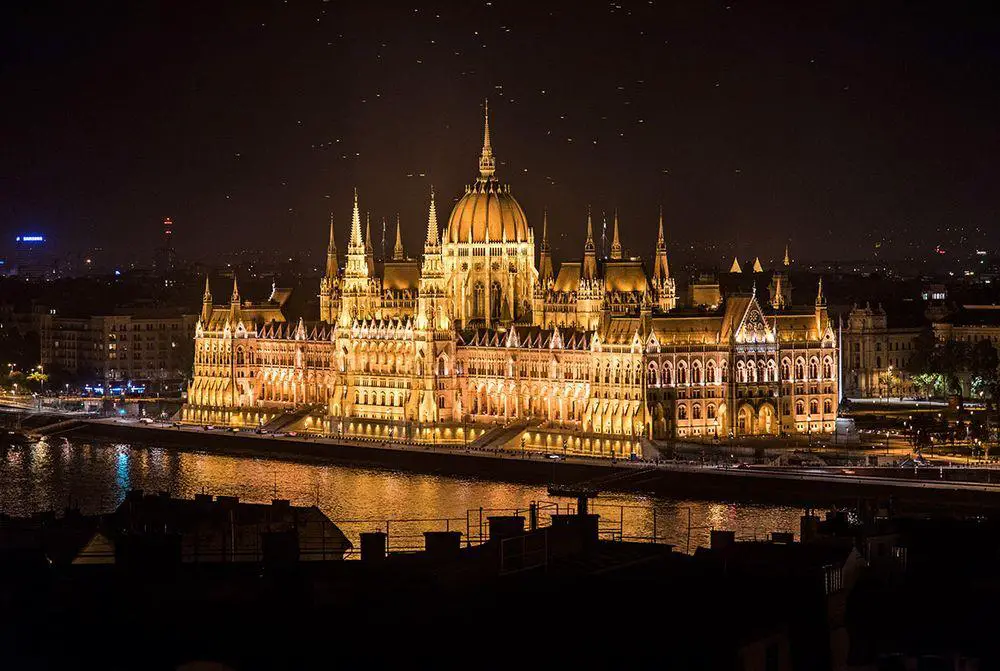
Wonders of Europe
The heritage of Europe is diverse and endlessly interesting. Incomparably rich is the wealth of European historical architecture, but this part of the world has exciting natural heritage and archaeological heritage as well.
 Recommended books
Recommended books
Lonely Planet Montenegro
Lonely Planet Montenegro is your passport to all the most relevant and up-to-date advice on what to see, what to skip, and what hidden discoveries await you. Enjoy the view of Sveti Stefan while lazing on the beach, visit Njegos’ tomb on top of Black Mountain, or experience ancient history in Kotor; all with your trusted travel companion.
Montenegro (Bradt Travel Guide)
This thoroughly updated new edition of the much-praised Bradt guide to Montenegro includes information on bird watching, national parks, and cycling, including the new European Bed and Bike Network. Montenegro is one of the hidden corners of Eastern Europe, with people who are almost overwhelmingly friendly to visitors who express an interest in exploring and learning about their country. No surprise then that the country is one of the top destinations in Europe.

